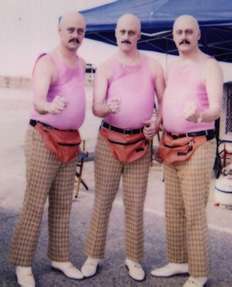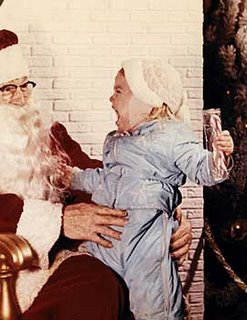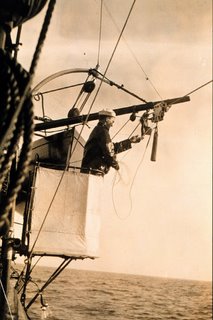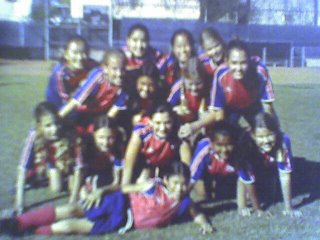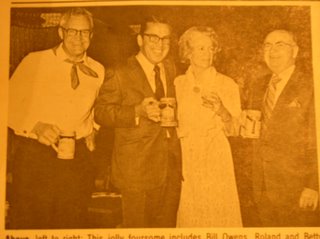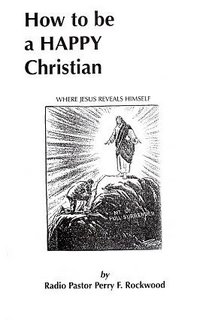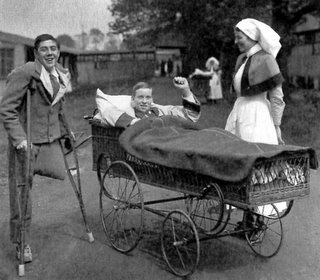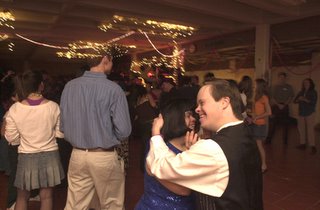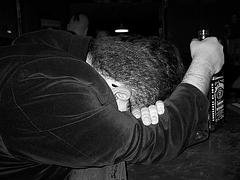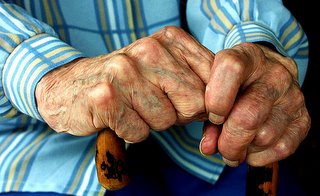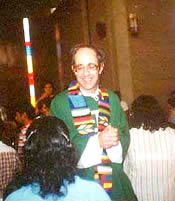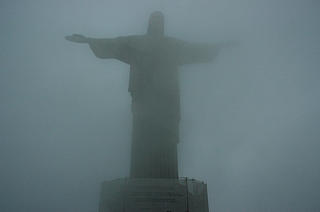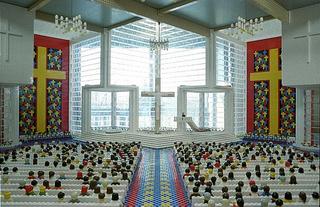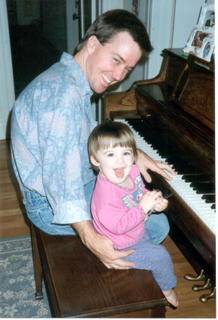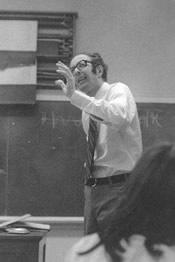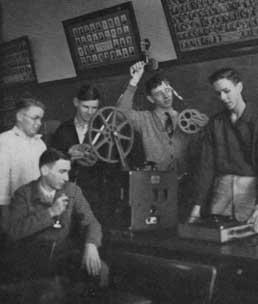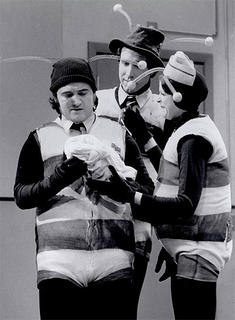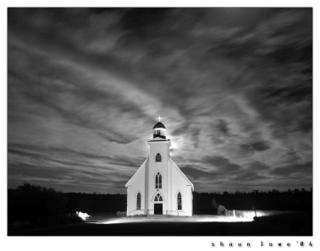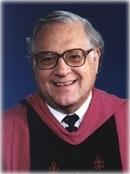
This is David Scholer. He is a professor of New Testament at Fuller Seminary near our home. We have a connection to Dr. Scholer through our de facto family member Jill Williams, who is a residential-scholar-guest-friend in our home, and is taking a class with Dr. Scholer.
What do you think of when you hear the phrase "seminary professor". There are a number of stereotypes, and by his photograph, Dr. Scholer might meet some of those. He is a scholar, has his doctorate from Harvard, and has written the thrilling volumes, "Nag Hammadi Bibliography 1948-1969 (1971) and Nag Hammadi Bibliography 1970-1994 (1997)". Now THERE is some light reading.
But forget the stereotypes. Completely. As our Jill has shared with us over the past months, Dr. Scholer is battling, and perhaps slowly succumbing to a terminal form of cancer. This was documented in a remarkable article by Connie Kang (full disclosure; our friend as well) in the LA Times this past week. As the times has a silly policy of registering, and a jillion pop-up ads, I will quote from the article liberally below. So sue me, Tribune Company!
"The Rev. David M. Scholer, a prominent New Testament scholar at Fuller Theological Seminary, has lived with constant pain and side effects from the treatment since he was diagnosed with colorectal cancer 3 1/2 years ago. The cancer is incurable, he says, and has spread to both lungs.
Despite the illness and fatigue, Scholer continues to teach and supervise the PhD program and its 155 candidates at the Pasadena seminary's Center for Advanced Theological Studies, where he has been associate dean since 1997. The way he is continuing with his duties has made Scholer a role model for living with an incurable disease, many people at the seminary say. Students, faculty and members of congregations where he speaks are deeply moved to see how he uses his suffering to minister to others. At the beginning of every course, Scholer tells his students about his condition so they're not surprised. In his teaching, however, he mostly sticks to the subject: the New Testament." The kind of [theological] knowledge we have doesn't give us any special status," he told seminarians in his class. "But there is a special responsibility we have to share it."His voice is hoarse, a side effect of the many medications he takes. And he lectures while seated, because it tires him to stand.
"I revel every day in remembering all the good things of my life — all the wonderful things I have been given: my family, my friends," he said. "I can't travel much anymore, so I think of all the places I've been. The joys and achievements of the past don't mean I live in the past, but I do celebrate with gratitude what has been."
Jill Williams, who will complete her master's degree in divinity in June, says she was in Scholer's class the quarter he learned his cancer had returned. "Ironically, I do not remember a marked difference in his teaching before and after the diagnosis," she said. "He consistently taught with joy, theological conviction and passion throughout the quarter."
In life's ups and downs, what's important to realize is that God's ways are well "above our ways," he said. "Maturity in faith is the ability to accept mystery and ambiguity."His message is this: "I really do trust in God. I believe in God's comfort and love. I believe that God is the giver of life, and that means to affirm this life, as well as to have faith in the life to come. God has given me life. I feel I have a calling in life."But, for the terminally ill, a time comes when the will to live doesn't work anymore, he said. "So, as an incurable-cancer patient, I give myself to God," Scholer said. "My life is in God's hands."
This story is for me, the definition of faith; of a life lived with candor, honesty, pain, suffering, mystery, and thankfulness. I really cannot find adequate words to explain how the article made me feel. And how inadequate I feel to be able to deal with a challenge like this. Humbling indeed.
In God's hands indeed. Dr. Scholer, thank you.



